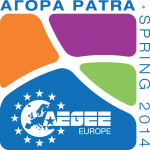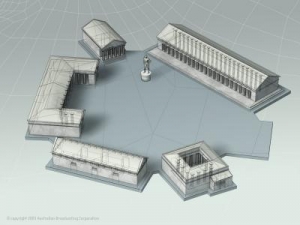“Agora”, coming from the Greek word “αγορά”, stands for marketplace. However the word originates from an ancient Greek verb (“αγείρω”) which means “to assemble”. In ancient Greek cities, an Agora was an open space serving as an assembly area, where political, artistic and spiritual life of the city was taking part and backdrop for commercial, civic, social, and religious activities.
Agora is the General Assembly of AEGEE. Each Agora takes place in a different European city. Depending on the capacities of the organising local, up to 1000 active members can take part and decide together about the future of the association. There are three statutory meetings per year:
- European Boards’ Meeting (EBM), in early spring.
- Two Agorae: a Spring Agora and an Autumn Agora.
During the Agora, AEGEE members vote to elect the new board of directors, called Comité Directeur, and all other AEGEE-Europe structures that will lead the association in the next term. During the plenary meetings and the so-called prytania sessions the internal organisation of AEGEE and different topics important to the network are discussed.
There are different sessions held at the Agora:
- Plenaries: It is a place for procedures, presentations and discussions, such as results and reports of the different bodies. Also voting is taking place during this session.
- Prytania: meetings in which proposals for changes of the statutes are discussed.
- Workshops and panel discussions with external speakers to stimulate and ensure personal development of AEGEE members.
- Other sessions where you can share your opinions and experiences.

